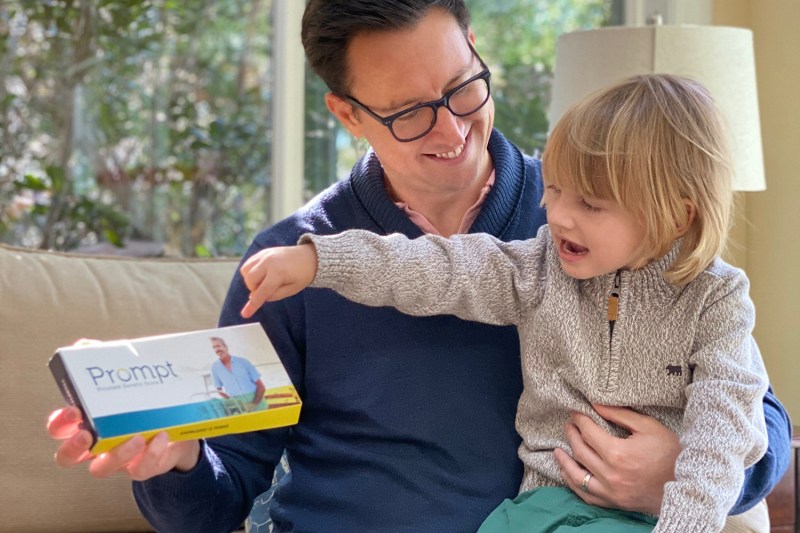 It’s the end of Movember and No-Shave November is upon us. Whether your facial hair has become a true work of art or you’re looking forward to shooting a silver bullet into your werewolf-ian scruff, we hope you’ve used the time — and any attention you may have drawn to yourself — to raise awareness of men’s health issues. It’s a time to sit with friends and family and have those conversations that make us squirm.
It’s the end of Movember and No-Shave November is upon us. Whether your facial hair has become a true work of art or you’re looking forward to shooting a silver bullet into your werewolf-ian scruff, we hope you’ve used the time — and any attention you may have drawn to yourself — to raise awareness of men’s health issues. It’s a time to sit with friends and family and have those conversations that make us squirm.
Speaking of things that make many of us uncomfortable: Prostate cancer is the second leading cause of cancer death in men. There was a time when a man hit a certain age — usually around 55 years old — and his doctor would tell him it was time to get a Prostate-Specific Antigen (PSA) test. If there was a history of prostate cancer in your family, your doctor may have recommended starting the test as early as your 40s. The test would be administered annually and measured the amount of PSA in the blood. For a generation of men, getting the test was practically a rite of passage.
What’s it for? PSA is a protein produced by your prostate that, for the most part, is found in semen. But if your body seems to be producing higher than normal levels, it doesn’t mean your swimmers are on overload. It may signal that you have cancerous tissue in your prostate. (Another common test for prostate cancer involves your doctor shoving a lubed, gloved finger up your butt to digitally check your prostate, and considering what’s at stake, if recommended, it’s best to grin and — bare it.)
“Right now the PSA test is still considered the gold standard for prostate cancer testing,” says Prompt PGS president Martyn Gross. “Tens of thousands of men have had the test, but recent research has shown that there is actually no major survival benefit to administering the screening.”
The test was first used for screening in the late 1980s, and once it got FDA approval in the ‘90s, it became quite common. By the 2000s, it was pervasive. The problem was that many men’s tests showed elevated PSA levels, so they’d go through uncomfortable (and expensive) biopsies only to find they were just fine. Often the elevated levels were the result of prostatitis (when the prostate gets infected by something like a leak in the urinary tract, or from sexually transmitted diseases) or Benign Prostatic Hyperplasia (when your prostrate naturally grows larger than usual — it’s not cancer, but it can pinch your urethra and affect your bladder, causing some issues with urination) or a statistical false positive.
“Recently, the government and the larger medical practice groups said they couldn’t recommend PSA screening unless it was for higher-risk patients … and it turns out we don’t really know for sure who is at a high risk,” says Gross. Of course, you might imagine that some of that resistance has less to do with being concerned about men going through needless biopsies, and more about being cost-efficient.
“Sadly, although the PSA-testing era led to around a 50% catch rate, we now have four times as many men walking into their doctors with full-blown metastatic cancer because they haven’t been tested at all,” says Gross. “The result is that more men are getting prostate cancer, more often.”
In an attempt to change those odds for the better, Prompt PGS was founded and funded by a group of urologists who recognized that, although we can’t screen everybody, we can’t screen “nobody,” either!

PGS stands for Prostate Genetic Score, and — here’s the good news — like a lot of genetic tests on the market these days, the Prompt PGS test kit is something you can order online and have sent to your home. There’s no need to go to a lab for a blood test, and nobody will be sticking a finger up your butt (unless you really want them to).
“What Prompt PGS offers is personalization. It can tell a man how often he should have a PSA test, avoiding false positives, unnecessary biopsies,” says Gross.
It’s simple. Go online and order the test (order by the end of November and there’s a $50 discount for Men’s Health Awareness month, bringing the cost down to $199), which will be sent to your home. The kit includes a cheek swab: just follow the instructions and return the kit to Prompt GPS. Within two weeks, a doctor from their group will contact you with the results and, with your permission, will share that with your doctor to help you both make decisions about further testing.
“This is totally different than trying to remember family history, or just blindly going through PSA tests,” says Gross. “Some men need to know if they need to get that biopsy or not, so we want to get them the results as fast as possible.”
Gross shares some compelling anecdotes about men who have used the test. “One guy had a brother and an uncle who each had prostate cancer. He had two biopsies because of the family history, but never developed cancer. His Prompt PGS score, on the other hand, was low, so now he has peace of mind. On the other hand, we’ve had several guys who just didn’t want to know, but then got high PGS scores. They discovered they had cancer early, and got it treated in time.”
The test is built on patents developed at Lake Forest University, so although the company itself is two years old, only officially launched a year ago, and started selling the kit online in September 2019; it’s built on a legacy of years of research.
“Using Prompt PGS is like using the Farmer’s Almanac versus satellite weather. It allows you to be really prepared. There’s a misconception that every guy who contracts prostate cancer is going to die, so they’d rather live in denial. Just because you get cancer doesn’t mean your life has to be miserable,” says Gross. “If we catch it in time, we can just cut it out!”
Gross’s goals — and the Prompt PGS team’s — are that “with the right screening frequency, we can take metastatic cancer down to 2% of that it is today. That’s the equivalent of a statistical error. We also want it to be that if you treat cancer the right way, it will be like having bronchitis or tuberculosis. Either of those would have killed you in the past, but now they are just something we have to treat.”



